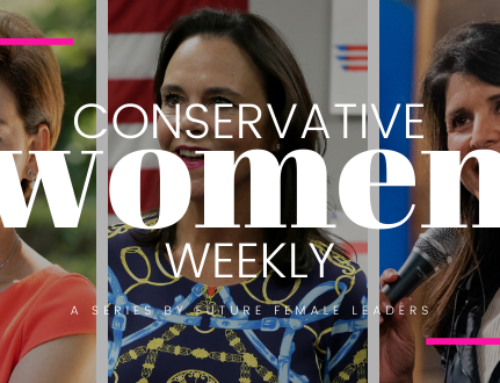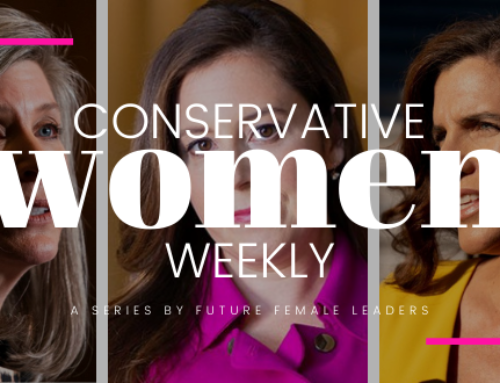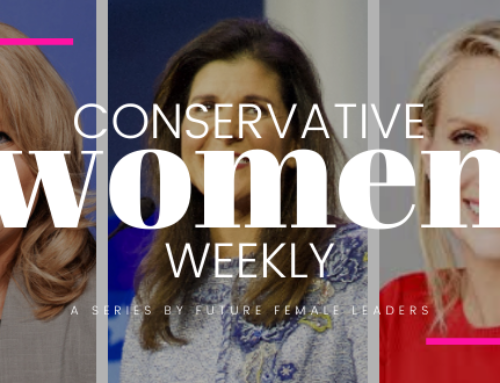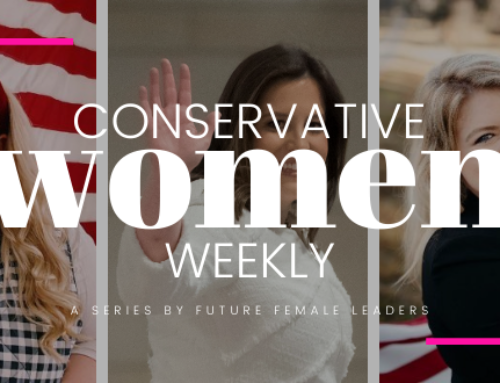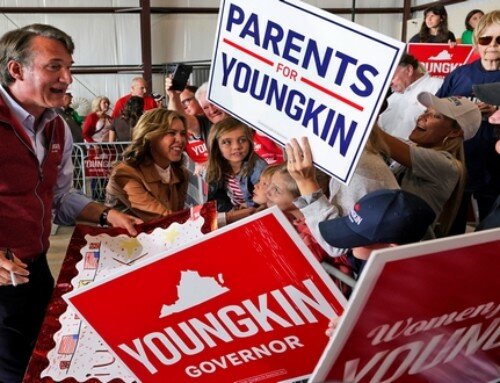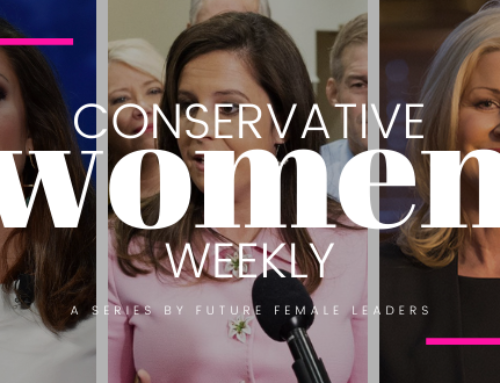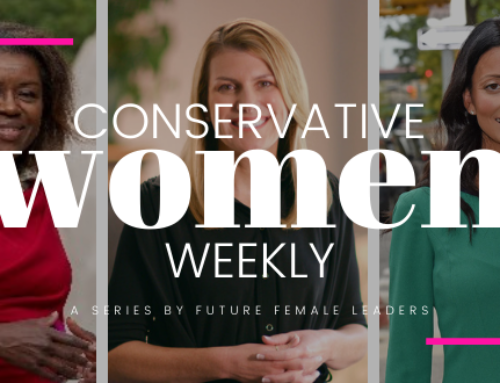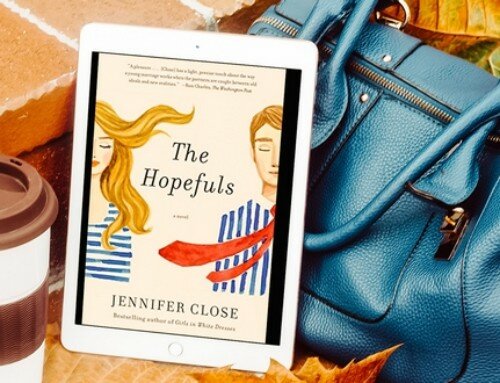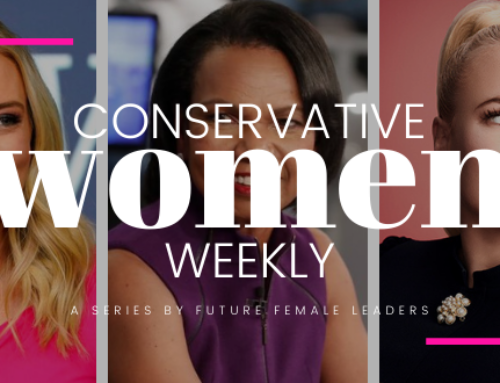Every month, when we announce our new FFL Book Club pick, I get excited about the author interview! We’ve been SO lucky to interview so many great authors in the history of the book club. We’ve been able to talk about quarantine binge-watching, writing processes, dealing with sequel fatigue, getting reading recommendations, and more. Reading a book is a journey all on its own, but I truly think there’s something special we can learn by hearing the author’s own words and feeling their passion for their work just ooze off the computer screen. We live in the most accessible world publishing has ever had–authors are on social media all the time, happy to interact with you and answer many questions. I hope you recognize how cool that is.
And how cool it was for us here at FFL to get to chat with Devon Daniels, the author of our March pick, Meet You in the Middle. This DC-based romance caught me right in the feels, and felt so authentic I wanted to scream sometimes. Whether you’ve finished it or not, I hope you’ll enjoy this interview!
What inspired you to write this book? Have you had your own Hill romance—or dated across political differences?
When the idea for Meet You in the Middle came to me in 2017, it was after what was (then) the wildest election of our lifetimes. You couldn’t go five minutes without seeing a breathless headline proclaiming the death of bipartisanship: couples breaking up (or even divorcing) over election results; estrangement from family and friends; new dating apps designed exclusively for members of each political party.
I became fascinated by the conflict surrounding bipartisan dating: Can you date across the aisle in today’s world? Does ‘opposites attract’ reach that far? And what does a successful relationship of political opposites look like? It felt like a uniquely relevant and compelling topic—and no one in the romance community was touching it. My goal was to write the literary equivalent of a Nora Ephron or Nancy Meyers film: a book that would be both hilarious and heartwarming, taking an optimistic view of the world and promoting a timely message of love beyond labels.
While I can’t say I’ve personally experienced a contentious ‘across the aisle’ relationship like Kate and Ben’s, I believe it’s both normal and healthy not to agree with your significant other on every single issue. In fact, I find it’s often those challenging conversations and debates where I learn the most. We should be seeking out more perspectives, not dismissing or demonizing those with different ideas on how to solve problems.
We primarily get this book through Kate’s eyes–but then we get to hear Ben’s side of things in the epilogue. Did you always know you wanted to tell it that way? Did you ever consider switching POVs more?
I always knew I wanted the book to be a single point of view because I had a variety of surprises planned for the reader, and knowing all of Ben’s thoughts would have made them impossible to pull off! I’d seen the hero’s point of view brought in at the epilogue in a few other books, and I thought it was the perfect way to give readers that small (but satisfying) glimpse into Ben’s psyche.
While I enjoy reading both single and dual point of view stories, I find that knowing every thought in the hero’s head can sometimes weaken the overall tension and take away from the angsty ‘will they or won’t they’ experience I crave in romance. As a reader, I don’t need every little detail or action spelled out for me, so in turn I like to give readers some leeway to fill in the blanks on their own. I prefer to leave a little mystery on the page.
The core of this book reminds me of some classic novels about misunderstandings. Did you draw inspiration from any of your favorite classics when writing this book? Why do you think society’s addiction to misunderstanding and assumption persists despite the best of novels telling us it’s bad?
I don’t really think about the story in terms of ‘misunderstandings’ (I actually think Kate and Ben understand each other quite well!), but it is most definitely a story about the dangers of making assumptions. From the get-go, Kate assumes she knows everything there is to know about Ben based on his political affiliation alone, though she eventually comes to realize the mistake she’s made in writing him off. It was a very deliberate choice on my part to frame the story this way because it’s the prevailing behavior I see taking place all around me (much to society’s collective detriment).
The “one upmanship” between Kate and Ben is so funny. How did you come up with some of them? Were any of them inspired by real-life experiences?
I had way too much fun coming up with Kate and Ben’s pranks! That sense of competition was so important not only for the evolution of their relationship (going from rivals to partners), but also as a way to illustrate their similar senses of humor.
While I was doing research for the novel, I spent a fair amount of time in the actual building where Kate and Ben work, the Hart Senate building in Washington D.C., and that’s actually where I got the idea for Kate and Ben’s mail wars. There were staffers constantly running everywhere getting signatures, and when I saw their messengered envelopes, a lightbulb went on. Just studying the architecture and layout of the offices also inspired a critical plot twist (no spoilers!)
In both life and in romance, I’m naturally drawn to couples who don’t take each other too seriously. When I wrote Kate and Ben’s running scenes, I drew a lot of inspiration from the way my husband and I behave when we play tennis (there’s a fair amount of trash talk involved). There’s a line in the epilogue I’m really proud of—that Ben and Kate “continue to push other’s buttons, but it’s collaborative, not combative.” I think it’s a perfect encapsulation of their relationship.
I loved all the little DC tidbits you infused throughout the book. What are your favorite DC spots?
Thank you for saying so! I’ve never personally worked in politics, so I was very focused on making sure the world I portrayed was as accurate as possible. One of my main concerns when I first started writing was making sure the way Kate and Ben continually crossed paths felt organic, and I was fortunate enough to get connected with a staffer who graciously answered all my questions about when, where, and how often staffers from opposite sides of the aisle actually interface. You’ll see many of the examples she gave me pop up in the book: lunch briefings, the Senate gym, kickball teams, specific bars frequented by Capitol Hill staffers, and so on. Washington DC is basically its own character in the book, so I wanted the events and landmarks I used (like the National Mall, the Willard-Intercontinental Hotel, and the White House Correspondents Dinner) to feel as authentically DC as possible.
My husband and I are big history nerds, so we’ve visited nearly every D.C. landmark, museum, monument, etc. multiple times (I chaperone my kids’ field trips, too.) It’s getting harder and harder to find things we haven’t explored! I love all the Smithsonian museums (in particular the National Museum of American History). A few years ago my husband and I had a memorable Abraham Lincoln-focused weekend, where we went on a Lincoln assassination walking tour, then saw a musical at Ford’s Theatre (I told you we were nerds!)
What would be your #1 tip for someone dating someone of a different political affiliation?
When I was writing the book, I read so much research on this topic! There are plenty of experts who give really great advice on how to have successful bipartisan relationships (here’s one I thought was excellent: the WSJ’s Elizabeth Bernstein interviewing psychologist Dr. Jeanne Safer, a psychologist in a mixed political marriage herself).
But almost all of the articles I read could be boiled down into two main recommendations: maintaining mutual respect (framing disagreements as differences of opinion and not an indictment of character); and avoiding getting into unwinnable arguments (being able to say, “I value this relationship more than I value the need to win this debate.”)
If someone wanted to write a romance novel, what would you advise they read–If you could only recommend one book other than your book to teach them the craft?
I’m actually not a big fan of craft books (I’ve tried to read several and always end up setting them aside). So much of writing is specific to each person and what works for them. I also don’t really believe in hard and fast writing ‘rules,’ but if you want to be traditionally published, then there are definitely genre-specific guidelines you’ll need to understand and follow (like basic story structure and conflict arc—and of course in romance, the happily ever after).
First and foremost: read as widely as you can in your genre (and just when you think you’ve read them all, go read a few more). Pay attention to what you like (and don’t like), then analyze why it worked for you. Was it the pacing or tension? The writing style? The humor or romance elements, or the character development? Once you understand the ‘why,’ it’ll be much easier to take those insights and apply them to your own writing.
What do you like to read in your spare time? Do you prefer fiction or nonfiction? Do you listen to audiobooks?
I read mainly fiction (with the occasional celebrity or political memoir thrown in). I read very widely in the romance genre, and I also love a good edge-of-your-seat thriller. I’m a very fast reader, so I almost always prefer to read rather than listen to audiobooks (with the exception of the memoirs I mentioned, which are always better narrated by the subjects themselves!)
What are you working on next?
I’m too superstitious to say much about my next book before it’s finished, but I can tell you it’s a rom-com in the truest sense of the word, with a bit of a generational twist. (Is that vague enough?)
Get your copy of Meet You In The Middle by Devon Daniels here.
Future Female Leaders is a participant in the Amazon Services LLC Associates Program, an affiliate advertising program designed to provide a means for us to earn fees by linking to Amazon.com and affiliated sites.



